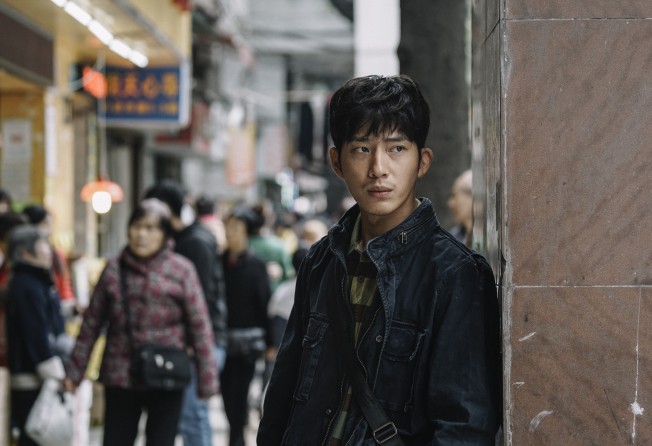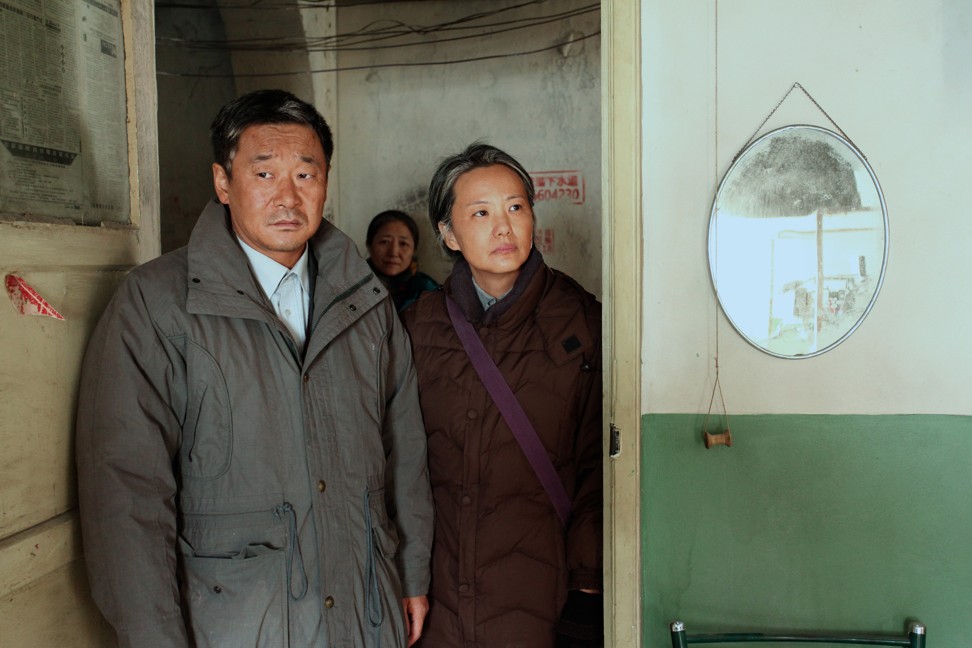When marketing campaigns go wrong: how China’s ‘creative’ film promotions can backfire
- They might help fill seats on a movie’s opening weekend, but misleading messaging can turn the audience off
- It seems the lesson is yet to be learned, as recent releases in mainland China have suffered from this fate

The equivalent of “24 rides on a roller coaster”, “12 free-falls on a drop tower” or “10 shots of espresso” is how publicists have been marketing The Shadow Play (2018). On the film’s official Weibo account, “brave” cinema-goers are encouraged to “challenge the physical limits of the film-going experience” by picking seats in the first three rows.
Such publicity is par for the course for a major action blockbuster. Only The Shadow Playis not one. Art-house auteur Lou Ye’s latest outing – with its poetic Chinese title translating as “In the wind lies a cloud made up of rain” – is an atmospheric neo-noir revolving around a young detective’s investigationinto the death of a high-ranking urban redevelopment official after a night of rioting in Guangzhou.
Perhaps it is because of scenes such as the opening sequence, in which the violent protests are shown through protracted shots filmed with handheld cameras, that audiences are being asked to sit closer to the screen;“closer to reality”.
The Shadow Play seeks to probe China’s dash towards greed-driven capitalism over the past three decades and the social disparity born out of that. At first, the film’s political allusions seemto be at odds with the publicity stunts. Then again, Lou might need all the distractions he can muster to usher his politically charged story into mainland multiplexes. In interviews, he has said that he has had to edit more than 100 versions over the past three years to win approval from censors.
Complications continued even after the movie’s premiere, at the Taipei Golden Horse Film Festival, in Taiwan, in November. The version screened at the Berlin Film Festival, in February, was shorter than the first cut by four minutes, with another 60 seconds slashed before the movie opened in the mainland, on April 4. Its screenings at last month’s Hong Kong International Film Festival were cancelled at the “request of the film owner”, according to a post on HKIFF’s Facebook page.
But there may be a more prosaic explanation for the flashy promotional campaign: the fear of flopping. For all the talk about a growing demand among Chinese audiences for more diverse content, domestic art-house films have been hit and miss. For instance, takings for Bai Xue’s critically acclaimed debut feature, The Crossing, which opened on March 15, stalled at a disappointing 9.8 million yuan (US$1.5 million).
Even veterans are struggling. Despite garnering rave reviews and two awards in Berlin, Wang Xiaoshuai’s historical drama So Long, My Son , with a reported budget of 60 million yuan, has raked in just 43 million yuan since its March 22 opening.
Confronted with a tepid box office, Wang decided to take things into his own hands, with a Weibo post offering “small tips to woo a boy or a girl, success guaranteed” and encouraging readers to buy two tickets for a late evening screening of his film so that lovers “could experience their first night together” afterwards.
“When the movie is finished it’s already after midnight. You have just spent your first night together. You will have a good reason to escort her home. She can’t say no to that and then … I can only help you so much,” the message read. “This won’t work for other films, because So Long, My Son allows you to hang out together for longer,” he added, referring to the three-hour running time.
Wang followed that up with a string of posts in which he called for young viewers to bring their parents to watch his film in “luxurious cinemas” – an experience that would “make them as happy as going on a trip abroad”. In another message, he pledged to bring his actors to screenings in declining industrial cities to meet out-of-work viewers.

The posts didn’t go down well, with cinephiles decrying Wang’s lurid strategies for selling what he himself described as a solemn ode to the struggle of the Chinese working class in the face of economic and social change. The director defended his posts by saying he was simply trying to “be close to the masses”.
Wang’s faux pas was committed just two months after the marketing debacle involving art-house darling Bi Gan’s Long Day’s Journey into Night (2018). Rather than highlighting its floating narrative and trance-like aesthetics, the film’s publicists chose to package it as a date movie for New Year’s Eve. While it enjoyed a record-breaking opening-day gross of 264 million yuan on December 31, its takings plunged the next day after a severe online backlash.
It seems the lesson is yet to be learned.